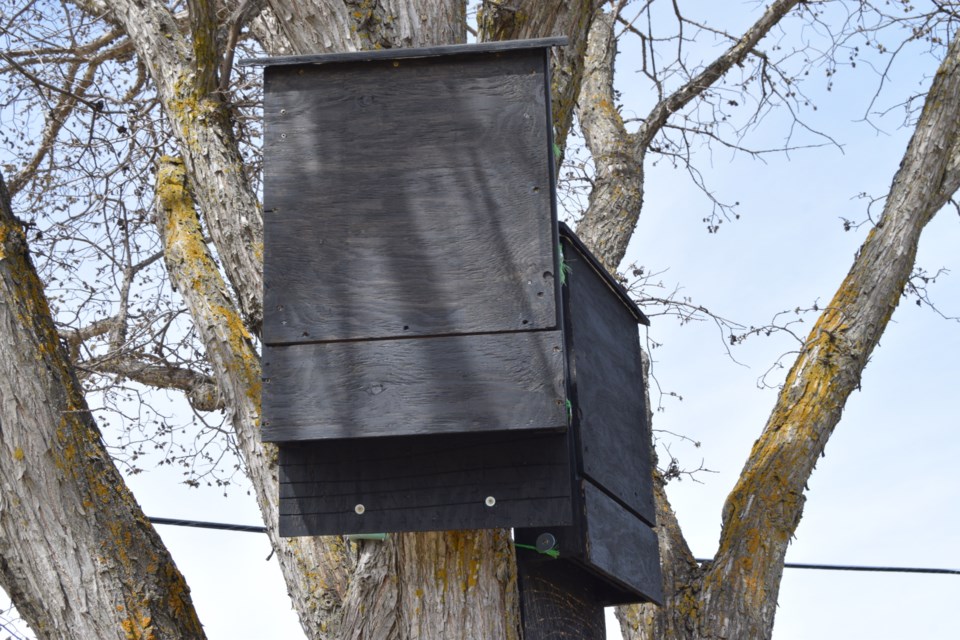BARRHEAD – Like all real estate, when it comes to where a bat decides to call home, it all comes down to location, location, location.
And Lisa Card, Highway 2 Conservation (H2C) coordinator, hopes some of the area's bat population will like Charles Yuill Memorial Park enough to call one of the bat houses they installed their home at least part of the time.
The project is a joint effort between H2C and Community in Blooms.
H2C is an environmental stewardship group. It is a partnership with Westlock County, Athabasca County, Thorhild County and the County of Barrhead, which joined in 2011 and became the managing partner in 2015.
Communities in Bloom is a national community beautification initiative, which began in 1995, with 29 communities. Since then, it has grown to encompass hundreds of jurisdictions across the country.
Barrhead, in a joint town and county effort, has been part of the initiative since 2014.
"We are trying to make the Town of Barrhead a little more environmentally friendly. Part of the work I have been doing with the county, as part of H2C, is putting up bat houses, so it was a natural first project. We put them up there because it is the perfect location for them. Bats need to be very close to the water," she said, noting Yuill Park is adjacent to the Paddle River.
Card also noted the location also makes it a good spot to host any number of educational events, from night walks to lectures or seminars. In addition to the bat houses, there are informational kiosks about the bats in general, and more specifically, the brown and the little brown myotis.
As part of the project, they also put up multiple bee hotels.
"They provide a place for the solitary, native bees, to lay their eggs," she said, noting the eggs will then winter in the hotels before hatching and emerging in the spring.
Card said there has been a lot of media attention in the last few years about the health of bee populations.
"What they are talking about usually is the European honey bee, but our native bees are also in trouble because of loss of habitat," she said.
Card added in nature the bees would use hollow stems of raspberry canes or wood that has been hallowed out by ants, which even in a rural, agricultural community, are in decline.
"So we thought we would put up the hotels and provide some habitat for the leaf minor and mining bees, by giving them a place to raise their young."
The bat houses and bee hotels and accompanying information were added to the Yuill Park set of attractions, which also includes the Japanese Friendship Garden, in early April.
"We were hoping to have everything up before the bees and bats arrived," she said, adding in both cases she believes they were.
However, Card said the jury is still out on if the bats, especially, like the accommodations.
"Sometimes it takes a couple of years for the bat houses to find an occupant. They are not like birds, they can be quite finicky with their habitat selection. If they are not high enough or are not getting enough sunlight or the shade of the tree is causing the temperature to be not quite perfect for them, they might not use it," she said. "But the location next to the river is perfect, so I suspect that we will see bats using them, if not next year. If not, we might have to make small adjustments to make them more palatable."
Barry Kerton, TownandCountryToday.com



